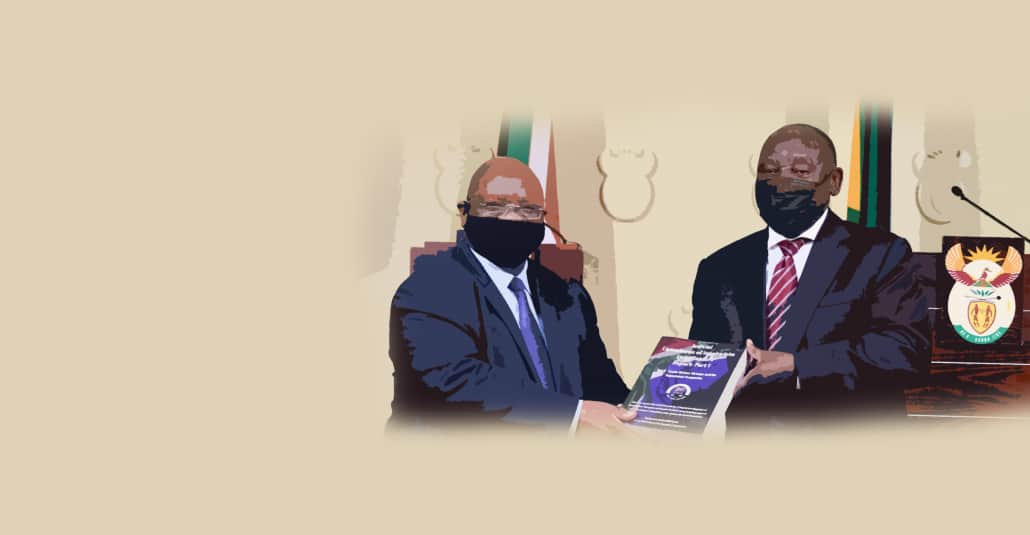President Cyril Ramaphosa has confirmed that lifestyle audits for members of the executive will soon be implemented by his office as per the recommendations of the state capture commission. Furthermore, they will be prohibited from partaking in procurement decisions for any government department or entity. This is contained in the response by Ramaphosa to the recommendations of the commission, on which he addressed the nation on Sunday evening, 23 October.
The commission, chaired by Chief Justice Raymond Zondo from 2018, found that interference from members of the executive in the procurement function of government was one of the ways state capture thrived. One of his recommendations was for the public procurement sector to be professionalised, and for legislation to be developed that establishes of a body for all public officials in supply chain management. This, said Zondo, would help authorities distinguish between procurement decisions made in good faith and those made irregularly, among other things, and would ensure consequence management for the latter.
“Apart from the abuse of procurement for the purposes of state capture, the country’s procurement system currently faces challenges of professional capacity, fragmentation and operational flexibility. The introduction of preferential procurement goals, which is an economic and social imperative, adds a layer of complexity that some have used to manipulate procurement outcomes,” reads the response document from Ramaphosa’s office.
The Public Procurement Bill, which is currently in draft form, already addresses some of the shortcomings of the sector, which find resonance in the National Anti-Corruption Strategy as well.
“A multi-pronged approach is required, which builds the state’s capacity in transversal contracts, reduces fragmentation, consolidates legislation, ensures enhanced regulatory and oversight capacity, and enhances transparency.”
The document further notes: “Recommendations that are covered under existing rules, and therefore do not require further action, include:
- the use of implementing agents, include the use of transfer payments, reprioritisation of budgets, oversight responsibilities of officials and structures, ensuring adequate accountability, and the keeping of reliable financial records;
- standardised guidelines for the appointment of implementing agents;
- ensuring project deliverables are included in business plans and effectively monitored;
- ensuring feasibility reports and business plans are available and approved prior to any funds being transferred to a service provider;
- noting the recipient of the transferred funds in departments’ financial statements to enable consequence management where funds have not been used for the allocated purpose;
- ensuring provincial treasuries have consequence management mechanisms for recalcitrant HODs or CFOs.”
Ramaphosa asserts that the centralisation of procurement will be pursued only where it is feasible and where the benefits are likely to outweigh the costs in terms of reduced flexibility and departmental accountability for spending, delivery and outcomes.
In a report that supported the launch of Corruption Watch’s newest online tool, Procurement Watch, the organisation noted that deviations and expansions are potential red flag areas and may indicate a lack of planning for procurement requirements, unexpected changes to the procurement process, or corruption. It is, however, important to remember that not all red flags are automatic indications of corruption. There may be legitimate reasons for deviations and expansions, as they are accepted mechanisms within procurement, provided that prescribed conditions are met.
On this note, Ramaphosa welcomed the recommendation of the commission that called for immunity for procurement officials who operated in good faith.
“Among others, the Bill will address the commission’s recommendations with respect to a code of conduct setting out the ethical standards for procurement of goods and services; protecting accounting officers and authorities from criminal or civil liability for actions in good faith and that are not negligent; harmonisation of public procurement legislation; standards of transparency; ensuring compliance with transformation imperatives; and establishing a professional body for public procurement officials.”

